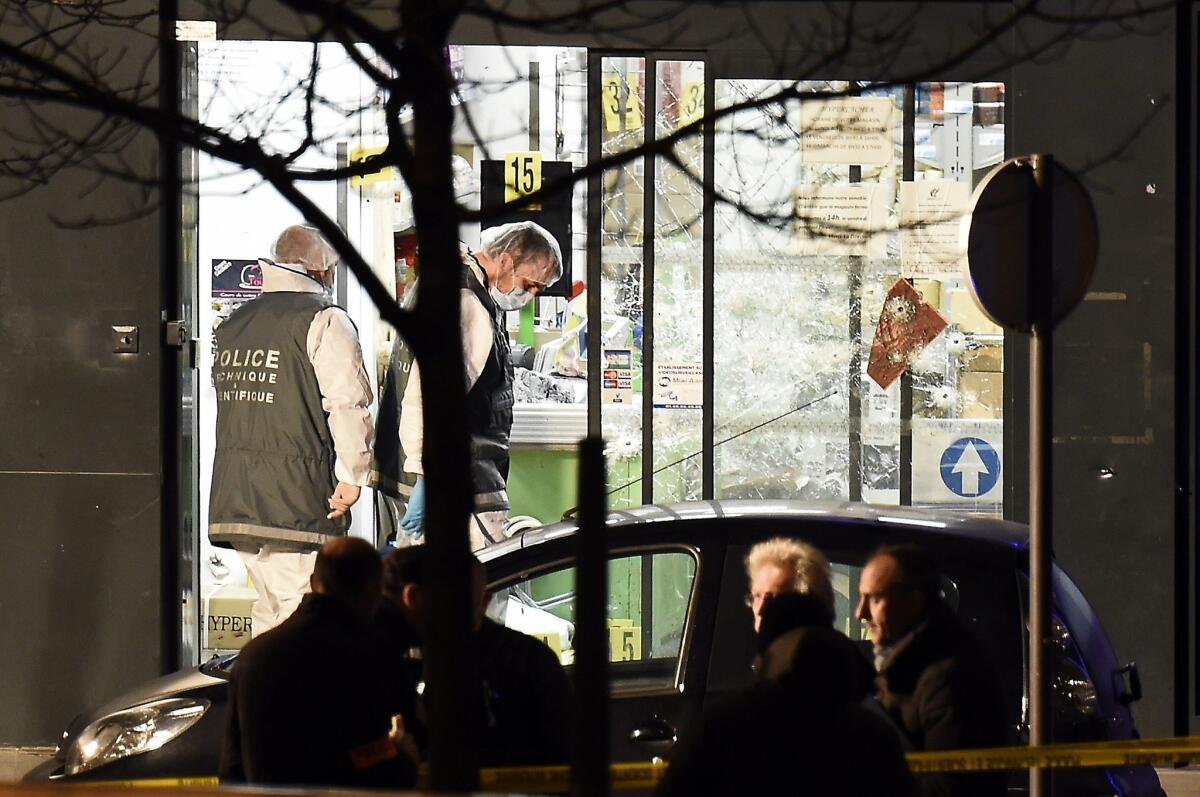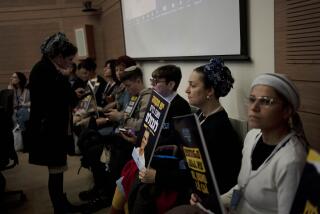Veteran negotiator talks about options facing French authorities

- Share via
Kidnappings carried out by extremist groups who seek attention or money for their cause can often stretch out over days or weeks, with negotiators having time and several avenues to reach out to the abductors.
The two police sieges in France on Friday were different, said former hostage negotiator Christopher Voss. Together they presenting authorities with an “uncontained situation” involving, in at least one case, gunmen already suspected of killing 12 people this week at the Paris magazine Charlie Hebdo.
Before police stormed the warehouse outside the French capital and the kosher grocery in southeast Paris where hostages were held by gunmen, negotiators had to weigh the abductors’ ultimate goals.
“One of the first things you try to decide is, does their vision of their future involve them living beyond this point?” Voss said of the hostage takers.
Even if the answer is no, there still may be ways to convince individuals that their cause can be furthered by living another day.
There probably was nothing that could be offered to them in tangible form, something they could touch or spend, he said. But there were intangibles. Offering those is at the heart of negotiating.
”These guys are all about ego. They saw themselves as jihadi gangsters,” Voss said. “They were on a killing spree. You ask them, how are you gonna live to fight another day if you die today?”
Voss, who served as the FBI’s international kidnapping negotiator from 2003 to 2007, said there was a good chance U.S. negotiators contributed advice before the crisis turned into a firefight. Hostage negotiators, he said, communicate at a “subcultural” level.
“It’s at the human nature level. In preparation, there would have been a lot of contribution from everywhere, including the U.S.,” Voss said, adding that hostage negotiators communicate “across countries all the time.”
Voss, who said he wasn’t involved in the Paris negotiations, serves as a professor, consultant and founder of the consulting firm Black Swan. In his teaching and consulting, Voss depicts kidnapping as a business, the product of people who expect a form of compensation for the work they’re doing.
When Voss negotiated with Dwight Watson, the tobacco-farming “Tractor Man” who drove his John Deere into the National Mall in 2003 and claimed to have explosives, he emphasized to Watson that he had already made national news.
“He had to understand that his point had been made,” Voss said. “He wasn’t insane. He was at least smart enough to know that there was a really good chance he wouldn’t make it out alive.”
More to Read
Sign up for Essential California
The most important California stories and recommendations in your inbox every morning.
You may occasionally receive promotional content from the Los Angeles Times.











